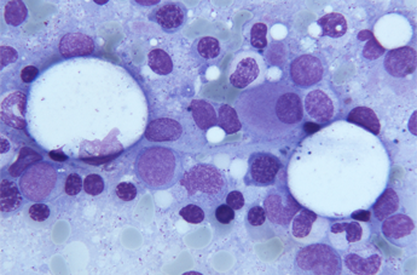Dr Francesc Solé, in charge of the myelodysplastic syndrome (MDS) line at the Josep Carreras Research Institute has taken part in an international project recently published in Leukemia magazine, Nature’s leading publication in malignant haemopaties.
The study”Validation of WHO classification-based prognostic Scoring System (WPSS) for myelodysplastic Syndrome and comparison with the revised International prognostic Scoring System (IPSS-R). A study of the International Working Group for Prognosis in Myelodysplasia (IWG-PM)“, establishes a new worldwide benchmark indicator to improve the prognostic stratification of patients suffering myelodysplastic syndromes (MDS).
Since 2012, an international prognosis indicator called IPSS-R (International Prognostic Scoring System) has existed for MD syndromes (Greenberg et al., Blood 2012) but it did not take into account an important indicator to establish a prediction of the development of the disease: transfusional needs. Patients with an MDS diagnosis who require more transfusions have a worse prognosis that can affect their survival or the risk of their disease becoming acute leukaemia. For this reason, since then, work has been done at international level gathering clinical information from as many patients over 16 years old suffering from de novo MDS as possible. By studying this data, researchers all over the world, including Dr Solé’s team, have established a new prognostic classification called WPSS-R, (Della Porta M et al. Leukemia, 2015), which completes the previous one and allows improvement of MDS patient categorization depending on their cytogenetic alterations, the WHO diagnosis, transfusional needs and parameters such as blasts, cytopenia, haemoglobin, platelets and the patients age.
This new clinical indicator will be of great use in low risk myelodysplastic syndromes, for these are the ones that usually have transfusional needs.








